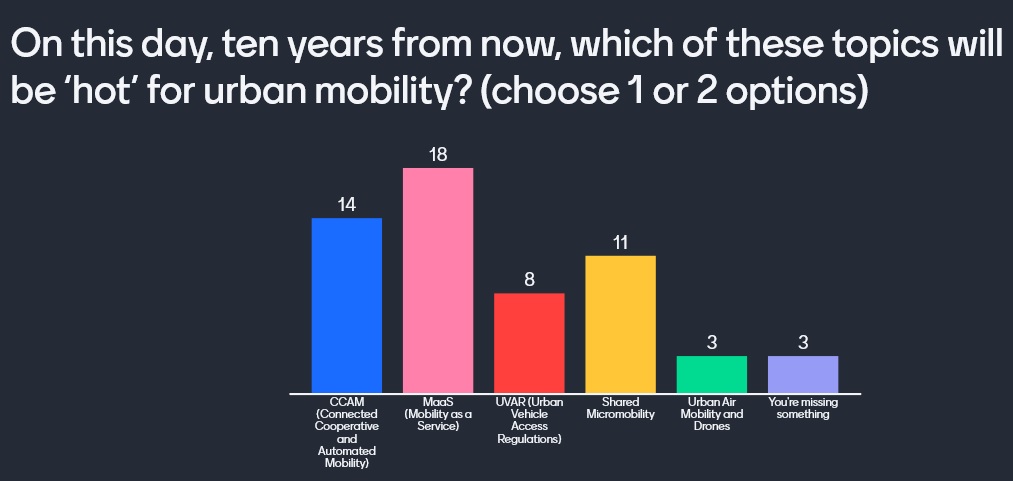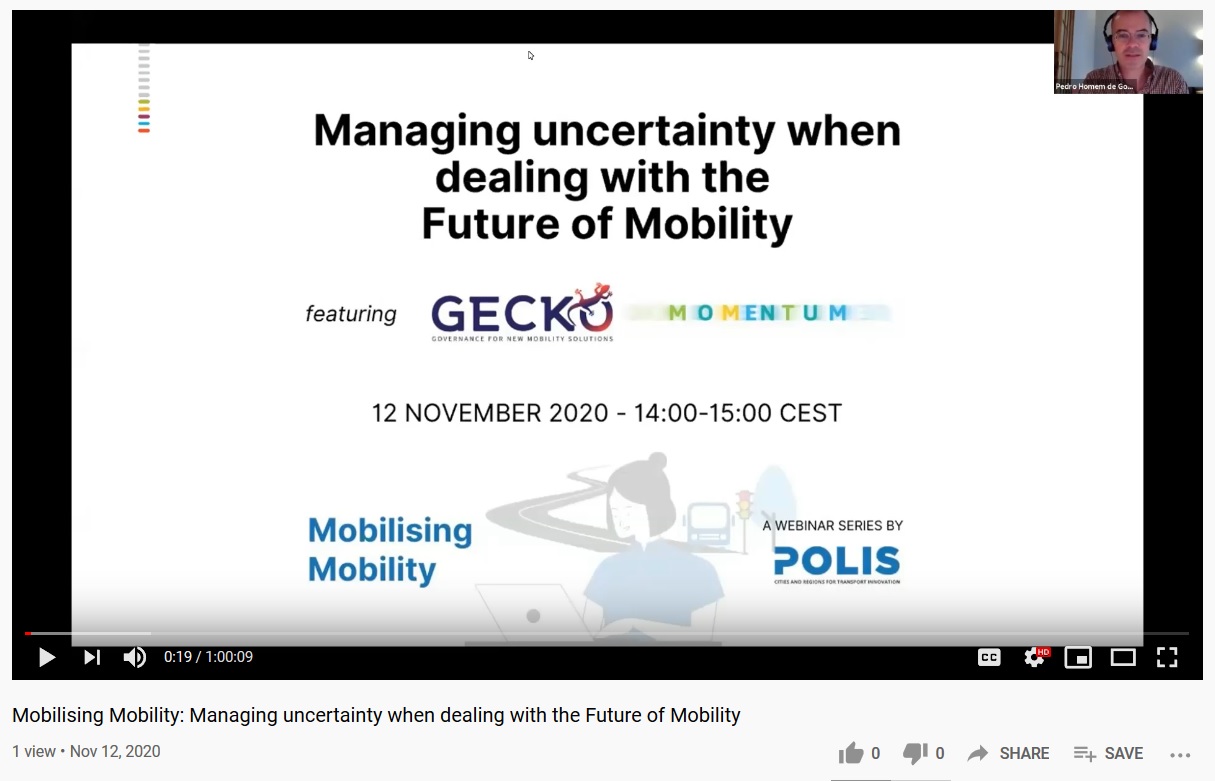
MOMENTUM-GECKO webinar: a glance into the crystal ball
MOMENTUM looked into 2020’s crystal ball to discuss the future: the computer screen. In the framework of the POLIS Mobilising Mobility Webinar Series, MOMENTUM argued about the future of urban mobility and transport modelling with colleagues from the GECKO project in a panel format, hosted by Pedro Homem de Gouveia, Senior Policy & Project Manager of the POLIS Network.
 After a general introduction of both EU-funded projects, the stage was set for the project representatives and Karen Vancluysen, Secretary General of the POLIS Network. The panel debate was enriched by survey questions related to the future of urban mobility. The majority of the 58 participants voted for CCAM and MaaS as the ‘hottest topics in urban mobility by 2030’.
After a general introduction of both EU-funded projects, the stage was set for the project representatives and Karen Vancluysen, Secretary General of the POLIS Network. The panel debate was enriched by survey questions related to the future of urban mobility. The majority of the 58 participants voted for CCAM and MaaS as the ‘hottest topics in urban mobility by 2030’.
The panel did mostly agree with the audience. Karen Vancluysen pointed out that ‘even though these are hot topics, it doesn’t mean that it is an effective measure (…). Measures such as micro-mobility arrived fast, whereas other measures were talked about for a long time, but the actual deployment is rather limited. For example the projections of CCAM do differ significantly’. Other panellists like Valerio Lubello, GECKO expert from University of Bocconi, did emphasise that ‘data management is the red line that connects all the ‘hot topics’ and the different services and players of the game, not just public or private transport providers’.
Furthermore, the panel and the audience agreed that transport modelling does indeed have a significantly positive impact on the creation of urban mobility legislation. Thus, Yannick Bousse, Senior Manager – Knowledge & Innovation of UITP, has emphasised that ‘ public transport authorities are useful to look at different types of innovative emerging mobility solutions and can function as an effective link between the public transport operator and the regulators. Hence, long-term policy goals are only achievable through cooperation’. Javier Burrieza, Transport & Mobility Director of Nommon, emphasised another aspect by highlighting that ‘modelling doesnt necessarily have clear answers for the future, but it provides us the opportunity to explore different scenarios which can prepare us for the future’.
Did we spark your interest? You can watch the entire 60 minute-long webinar on Youtube.



